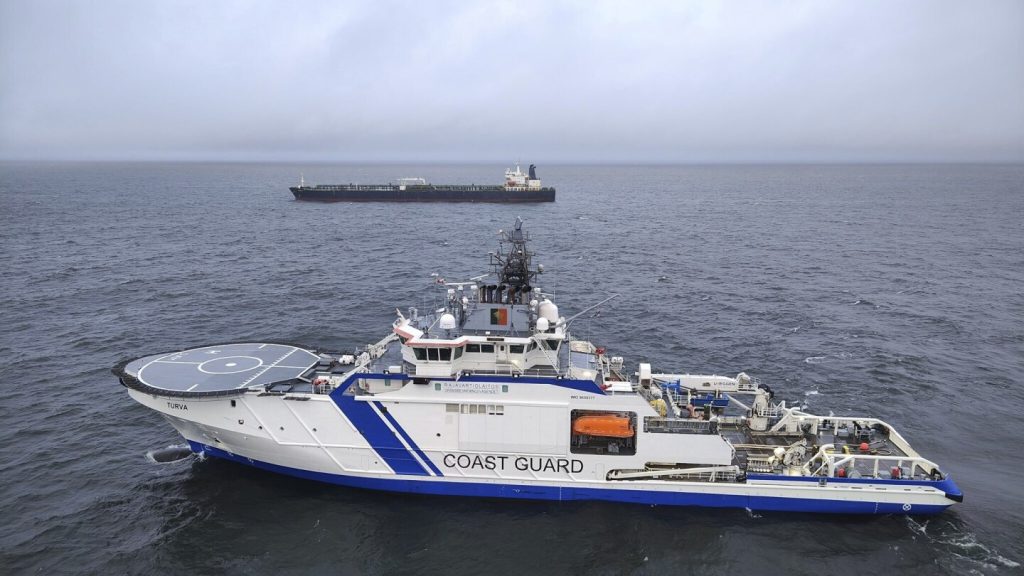Finnish authorities detained a ship suspected of damaging a Baltic Sea power cable and several data cables in an incident involving disruption of key infrastructure in the region. The vessel in question, the Eagle S, is part of Russia’s shadow fleet of fuel tankers, which are aging vessels with obscure ownership used to evade Western sanctions and operate without Western-regulated insurance. The ship was flagged in the Cook Islands but has ties to Russia. Finnish police and border guards boarded the Eagle S and took control of the command bridge, holding the vessel in Finnish territorial waters for further investigation.
The EU’s foreign policy chief, Kaja Kallas, commended Finnish authorities for their swift action in boarding the suspected vessel, describing the incident as part of a series of suspected attacks on critical infrastructure. Kallas highlighted the threat posed by Russia’s shadow fleet, which not only threatens security and the environment but also funds Russia’s war budget. The EU plans to propose further measures, including sanctions, to target this fleet. The damage to the Estlink-2 power cable, along with previous incidents involving data cables and gas pipelines, has raised concerns about potential sabotage and systemic threats to the region’s infrastructure.
The Estonian government responded to the incident by convening in an emergency session to address the situation. Prime Minister Kristen Michal expressed concern over the shadow tankers aiding Russia in earning funds for hybrid attacks, emphasizing the need to improve monitoring and protection of critical infrastructure on both land and sea. Estonia’s President Alar Karis also highlighted the importance of taking action to counter the systemic threats posed by repeated damage to Baltic Sea infrastructure, emphasizing the need for collaboration with NATO allies like Finland. Repairs to the damaged power cable are estimated to take up to seven months to complete.
In previous incidents, two data cables running between Finland and Germany and Lithuania and Sweden were severed in November, with German officials suspecting sabotage. The Nord Stream gas pipelines, which once brought natural gas from Russia to Germany, were also damaged by underwater explosions in September 2022, prompting criminal investigations into the cause of the sabotage. Estonia’s network operator, Elering, assured the public that there is enough spare capacity to meet power needs on the Estonian side despite the damage to the power cable. The incidents have raised concerns about the security of critical infrastructure in the region and the need for enhanced measures to protect against future attacks.
The connection between the damaged cables, gas pipelines, and the suspected involvement of Russia’s shadow fleet has raised further concerns about the potential for coordinated attacks on key infrastructure. The incidents highlight the vulnerability of Baltic Sea infrastructure to sabotage and the need for increased vigilance and security measures to prevent further disruptions. Finland and Estonia, along with other NATO allies, are working to address the systemic threats posed by repeated damages, with a focus on enhancing monitoring, protection, and collaboration to safeguard critical infrastructure. The incidents serve as a reminder of the ongoing security challenges in the region and the importance of proactive measures to prevent future disruptions to key infrastructure.














